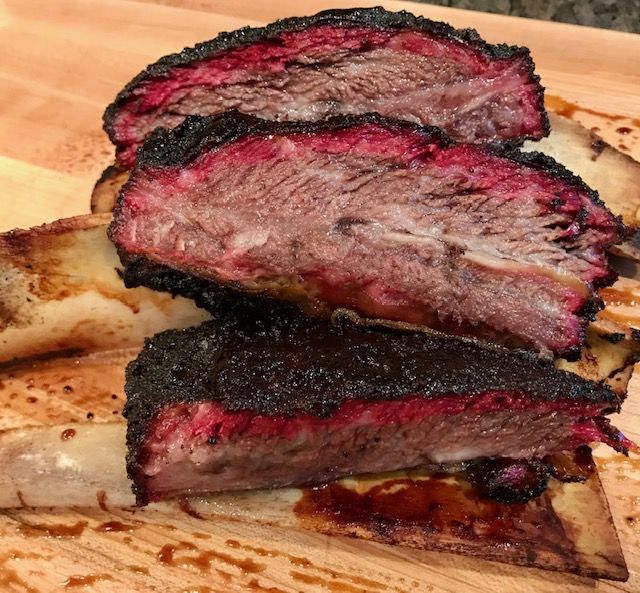When most people think about barbecue ribs, they think pork baby backs or spare ribs. If you want to up your barbeque game, you have to try smoked beef short ribs. They have big bones, are super tender, and have a rich, beefy flavor – not to mention a huge bone-in presentation on the dinner table! Short ribs have definitely gained popularity over the years, both in the barbecue world and on restaurant menus.
How many ribs are there on a steer?
There are thirteen ribs on a side of beef. The first five are on the chuck primal, which is the shoulder. The next seven are on the rib primal, and the last one is on the short loin which is in the middle of the steer’s back. It is between the twelfth and thirteenth rib where the side is separated into two pieces.
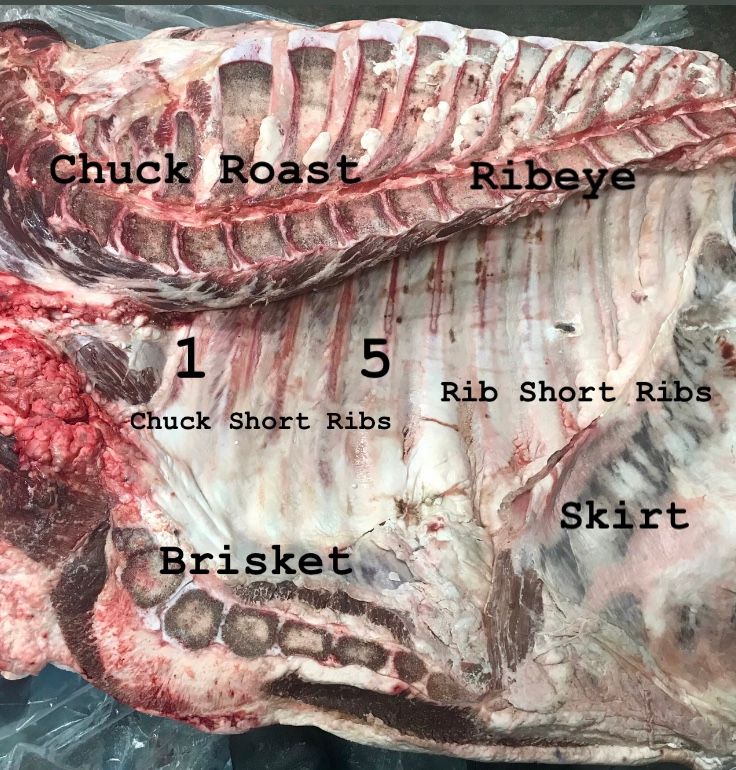
This is also the spot used to determine the USDA grade of beef. Prime grade cattle are young, well-fed, highly-marbled, with an abundance of intermuscular white flecks of fat running through the meat. Only 2-5% of all cattle grades out to be Prime. Choice grade beef will be moderately marbled and the most readily available in the market. Select grade will be slightly marbled and the lowest quality.
What is the difference between chuck and rib short ribs?
Chuck short ribs come from right under the shoulder. These five rib bones are smaller than the rib short ribs and need a longer cooking time. The chuck or shoulder of the animal is large and supports a great deal of the steer’s weight. It also gets a lot of exercise and contains a good amount of connective tissue. Cuts from the shoulder require the proper cooking technique to make them tender. Chuck short ribs are the easiest to find at your local market and are less expensive than rib short ribs.
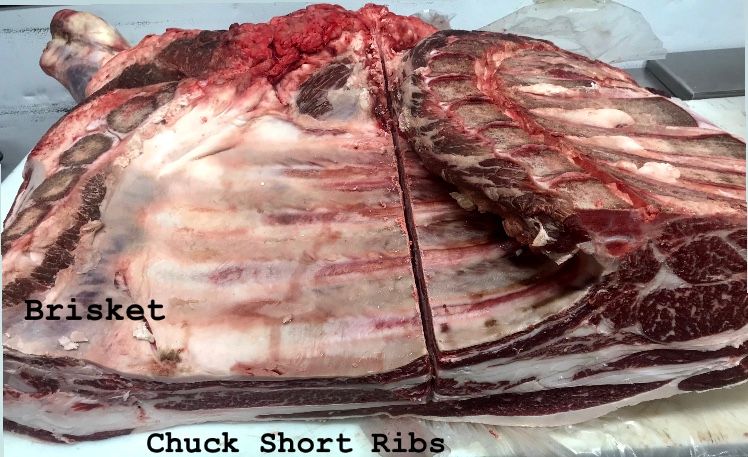
Rib short ribs come from just under the rib primal in the middle of the steer’s back (just above the navel). These ribs have an even layer of meat on them with a high fat content. Rib short ribs are a little more tender and most preferred in the barbecue world. These bones are five to six inches long and are also known as plate short ribs. Only the sixth through the eighth ribs are used for these short ribs, as they are the meatiest. Similar to pork, there are different cuts of beef ribs.
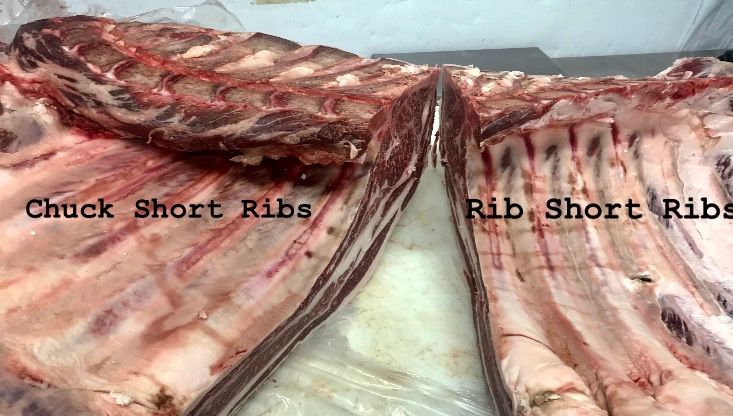
How to prepare beef short ribs
Start with some bone-in short ribs. You’ll notice a layer of fat across the top of your ribs. Underneath that fat and above the meat is the “silverskin”, a thin layer of connective tissue that has a silvery sheen to it. It’s best to remove the silverskin as it is not the type of connective tissue that breaks down over time.
Start by trimming the fat down to the silverskin, then with your sharp knife remove it. There is also a heavy membrane on the backside of the beef ribs. It’s best to leave this membrane on as the meat may fall off the bone during the cooking process. Once you cook the ribs, the membrane is easily cut away. This is unlike smoking pork ribs, where it is best to remove the membrane on the back of the ribs.
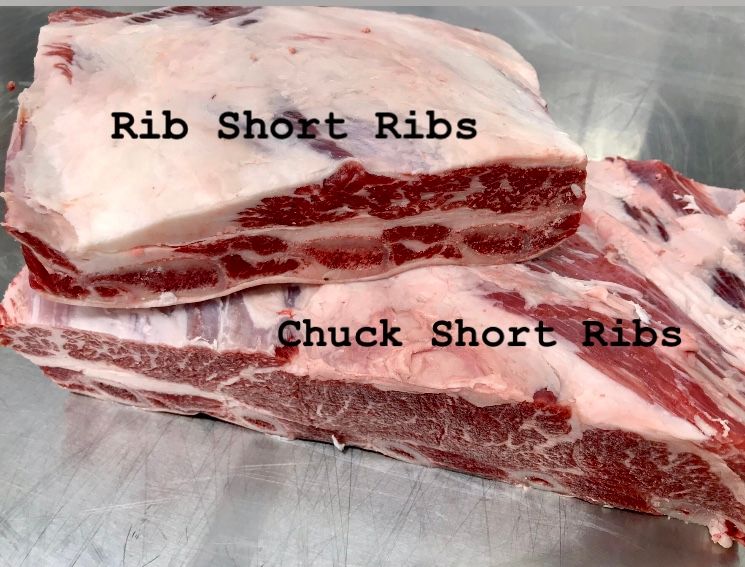
Beef short ribs seasoning
The night before I’m going to do smoked short ribs, I sprinkle the meat with kosher salt and put them on a tray uncovered in the fridge. This is called “dry brining” and keeps the meat juicy and flavorful. About an hour before putting them on the smoker, I hit them with a little more seasoning.
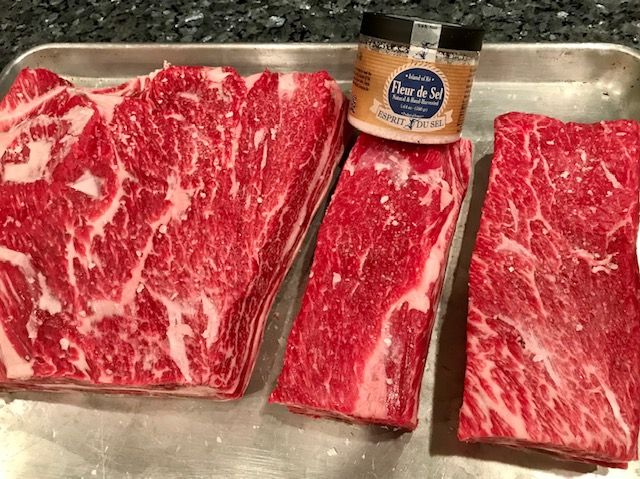
You can simply use salt, pepper, and garlic, but if you want to elevate your barbecue experience, try using Dead Rooster Black Gold rub. This rub is perfect for beef ribs with its coffee, garlic, and a little bit of sweet and spiciness. It goes perfectly on large cuts of beef.
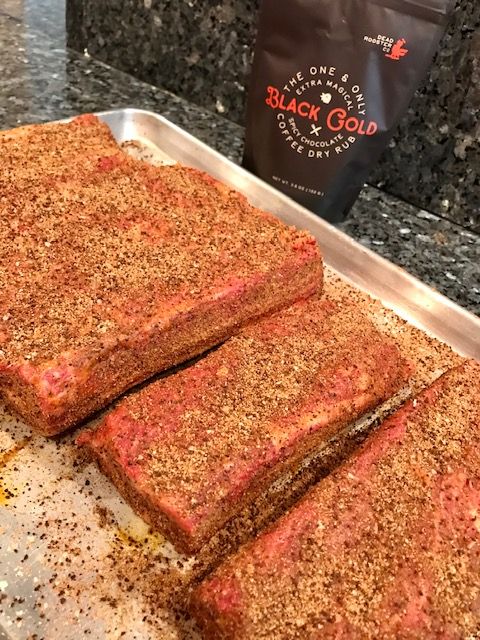
How to smoke beef short ribs
I set my barbecue pit to 225-250 degrees and use pecan wood for a perfect smokey flavor. I feel this is the perfect temp for a “low and slow” smoke. Being a butcher that sells short ribs every day, I’m often asked how long to cook beef short ribs. A good rule of thumb is 7-9 hours for ribs that are 1½-2 inches thick. How well your pit holds temp and weather conditions also play a role in your total cook time. I always say to cook to temperature, not to an exact time. You can’t rush barbecue!
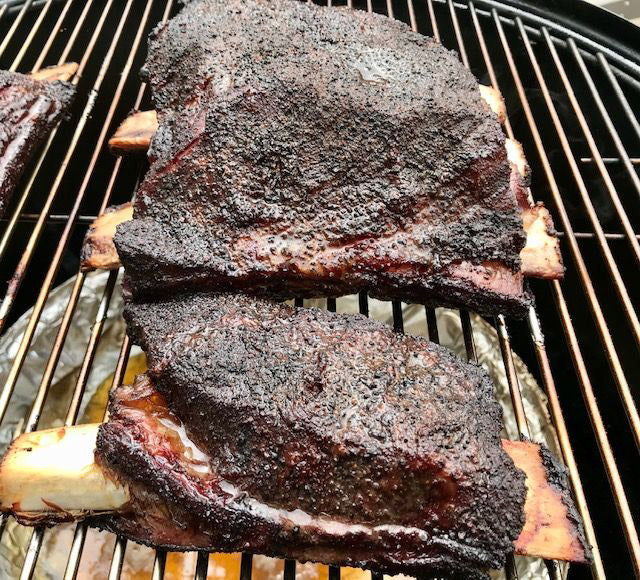
When the short ribs are done, your instant-read thermometer should slide easily into the meat and give you an internal temperature 203-205 degrees. The next step is very important: let the ribs rest for 30 minutes or so! Allowing the meat to rest redistributes all the juices and keeps them inside.
Enjoy!
